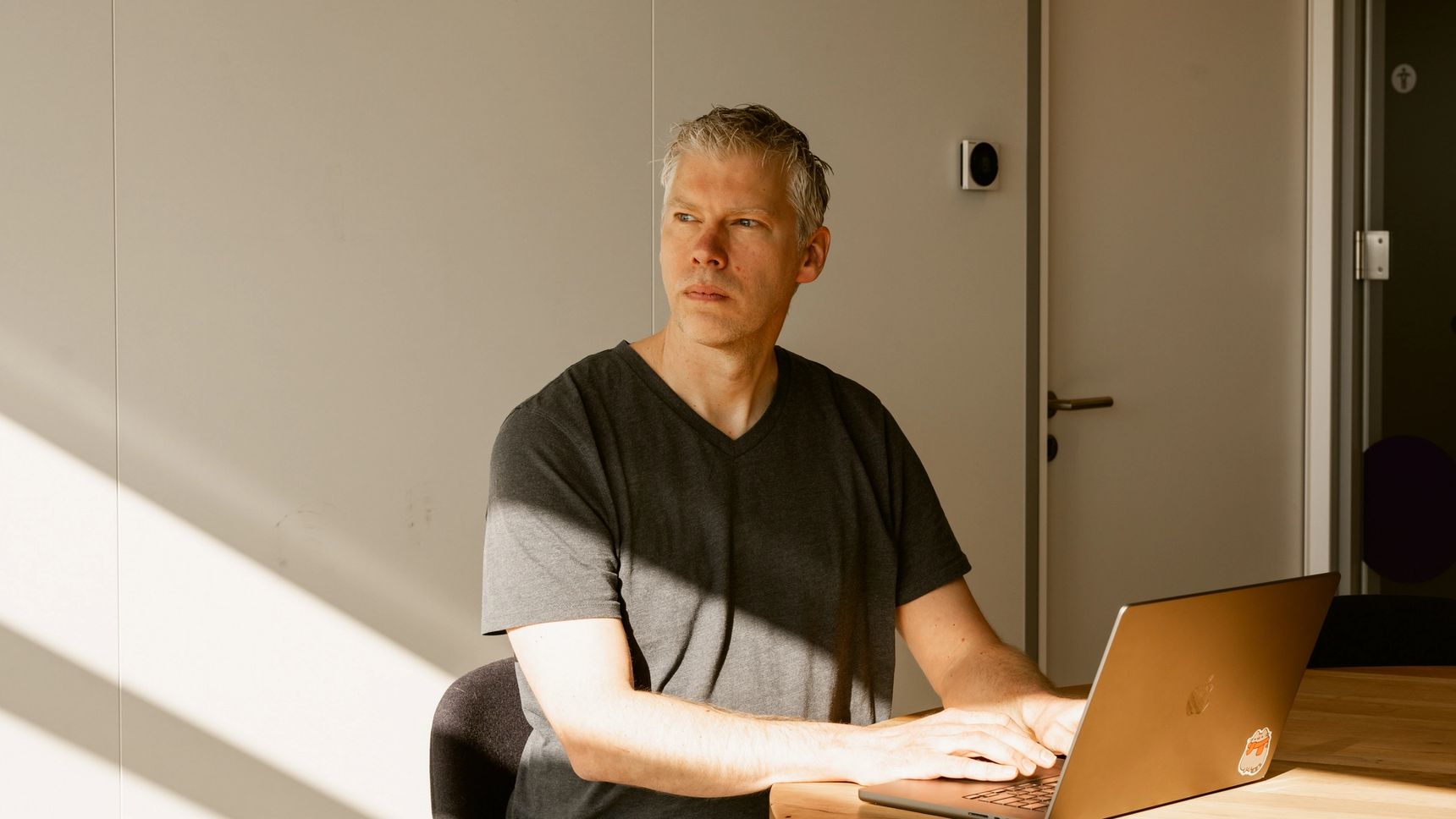
Pieter Dubelaar
Solution Architecture Lead
8 Apr 2025, 6 min
Europe’s privacy-first legacy is now its digital sovereignty dilemma
Introduction
In an open letter to the European Commission, over 90 European technology companies called for "radical action" to establish digital sovereignty through the creation of a "EuroStack" initiative aimed at reducing Europe's reliance on foreign-owned tech giants.
We caught up with Pieter Dubelaar, one of the brightest tech minds within the company, to pick his brain about how he sees the recent developments.
Interview
Q: What exactly do you feel needs to happen around the call for European IT sovereignty?
I think hosting is one piece of the bigger picture described in that article. The article talks about how Europe needs to become sovereign (again), especially when it comes to IT. Hosting is a crucial component in a larger landscape. So, it’s not just about the big hyperscalers like AWS, but also about SaaS services—your email, your identity providers. These are the foundations you want to have control over in your stack.
When we talk about profiling, it’s about dependency on your entire system landscape—your TV, your ISP, your cloud providers. That’s what makes this moment interesting: the fact that we’re asking these questions and considering whether we can build a world where we’re not dependent on non-EU players.
Q: How do you see the changing dynamics between Europe and the US?
I think it is very similar to something we had 10–15 years ago with China. Back then, the focus was mainly on hardware, as most of it came from China. We managed to reduce our dependency on that—up to a point. Suddenly, we needed to have our own European mobile hardware strategy. We realized, "Okay, we have trusted these vendors so far, but we might now need to reconsider our trust."
Now, it looks like we’re starting to question our dependency on the US when it comes to software, as the relationship might be changing. And it’s about the whole IT spectrum—from internet connections via satellite or undersea cables, to hardware, hosting, services, and security. That’s the challenge.
Europe has wanted to embrace open source for over 20 years. It aligns with our ethics, it’s available, but it never really took off. When push comes to shove, people fall back on commercial solutions—like Microsoft’s—because many open-source solutions still have their pain points in their lack of UX finesse and enterprise support, even though it’s matured a lot. We’d have to take a large step towards it if we want an alternative right now. That’s the nearest option we’ve got.
There are some commercial initiatives like Proton in Switzerland and others, but they’re not that far along yet. They didn’t have to scale. So, what we have are open-source alternatives. I’m not aware of any European company stepping up like a European Microsoft or Google that could offer full web services—email, spreadsheets, the works.
There’s never really been fertile ground for something like that to grow in Europe. Either people were satisfied with open source within an organization, or it couldn’t compete with the offerings from the US. Now, though, the US could be parked "behind the wall," so to speak. Suddenly, there is fertile ground for these kinds of initiatives. The only question is: can we move fast enough?
What we use is mostly cloud services. We need to design things, so the software layer isn’t visible. Sure, some forms of hosting are still hardware-based, but most of it is software and services. The full stack of services running on top of that.
Q: How do recent developments compare to the ‘chip war’ with China you are describing?
That realization - “We need to do something ourselves” - is always driven by politics. And that pivot is the part I find most interesting.
In the late 70’s and 80’s China realized: “If we want to survive, we need to play the capitalist game, not as a belief system, but as a means to an end.” Their goal of introducing free-market thinking was there to protect and expand their desire for control.
It seemed to have taken us a while to realize that cheaper Chinese alternatives for tech solutions come at a price. And that’s where things shifted. We started seeing Chinese tech as a real threat. First, it was Huawei, now it’s more systemic. Because our Western values clashed with their ideology. China wasn’t pushing their ideology with the tech—it was just about domination. So, we started seeing risks in things like wiretapping in chips. That was a turning point.
The question is: "How do we turn our newly acquired awareness with regard to our dependency on our now less-than-stable ally, the US, into action?" Because we can’t keep waiting. Although we must realize that although the relationship and dynamics with China are more structural, our relationship with the US can change quite quickly, with the US being a democracy in flux.

Q: What do you see as the main thing holding us back?
If you look at Europe, we’re really good at making regulations around tech. So good, it actually stifles innovation. If we really want to lead, we need to change how we think in Europe—start investing in tech companies and give them more freedom. We can learn from others. The way other countries give their tech companies room to grow—leads to progress. If we just keep talking about it at the EU level, with all the “ifs” and “buts,” nothing will happen. That’s what struck me when I read that whole article: it’s nice that we’ve reflected deeply again, but we need to move to action now. In my view, the EU should back off a bit, remove some of the barriers, and just let people try things. Because right now, we have two comparable initiatives in Europe: one on improving our own defense, and one on digital sovereignty.
With defense, it’s easier—everyone just needs to spend more money which allows us to buy weapons. A country like Poland understands that well.
But with IT, we’re bumping up against cultural values—like the trade-off between privacy and innovation. That’s deeply embedded in us as Europeans. It’s not something you can fix by just throwing money at it.
Q: What does recent history teach us about this?
We’ve seen this happening before with Gaia-X. That was supposed to be our European cloud initiative. But it never really happened. Partly due to our fragmented cultures and languages. We’re kind of a mess that way. So, I expect that over the next four years, not much will happen on that front. Sure, we’ll fund defense. But in IT? I don’t think we’ll make real progress. Because of how Europe is organized and our diverse cultural values. It’s in our societal DNA.
And that’s an interesting thought. Gaia-X as an example shows the challenge. Back then, the pressure was lower. Now, there’s commercial pressure. We all want it, we all say the right things—but to really make it happen, we need to act. The challenge isn’t just financial—it’s also moral and psychological.
Look at the US: aside from the Civil War 250 years ago, they haven’t really faced existential threats. As a result, they don’t value privacy the same way we do in Europe. They can just build whatever they want.
In Europe, we had WWII. We saw what happened when privacy wasn’t a thing yet when we were really good at keeping track of citizens’ profiles, which left a substantial mark and was a black page in our history. That’s why privacy became a core value, and that shaped our attitude toward data and innovation. We’ve trained ourselves to be wary of surveillance. But now that unfortunately also limits our ability to innovate.
Q: Is there anything we can do in the Netherlands to move faster?
As the Netherlands alone, we likely won’t be able to build much muscle in this space. And that’s true for all individual countries. The governments being elected across Europe are increasingly anti-EU, not pro-EU, which is not helpful for solving this. But the fact that there’s pressure—because of the changing landscape in the US and elsewhere—might finally let us put a certain local focus aside, at least temporarily. So maybe budget caps will be lifted. Maybe we’ll finally invest. Maybe we’ll understand that working together benefits all those that do.
But the question is whether we have the mindpower as well as the collective moral compass to give our traditional European worldview a place—but not let it hold us back. All in all: It’s going to take time. We live in a world where in China, the state has full control. In the US, one party often gets full freedom to push through ideas. But in Europe, no one really has that power. It would help tremendously if someone in Germany or France stood up and said, “Let’s just go for it,” and the rest followed. That would be amazing.